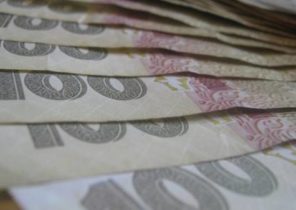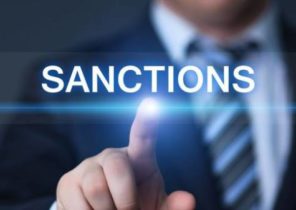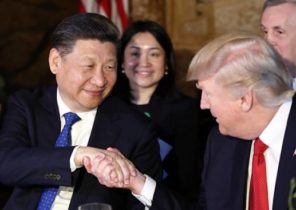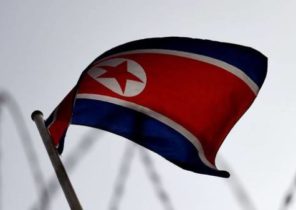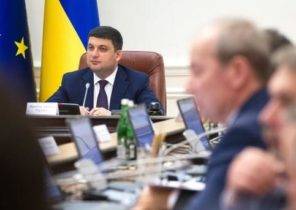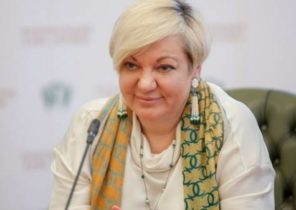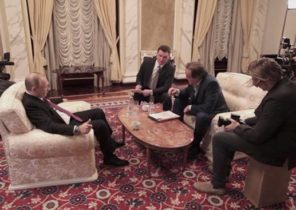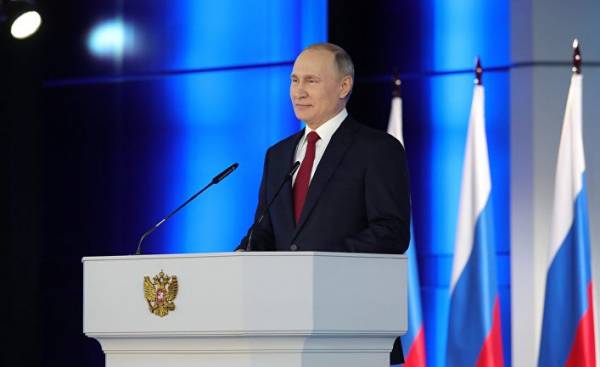
We must call a spade a spade. It was not the peace talks between the foreign Ministers of the warring countries. 30 April 2020 in the video took another diplomatic battle between Russia and Ukraine
The parties shared legal and propaganda attacks on secure borders, sluggish fire contact continues after the collision. The Russian side draws its subversive groups under the code name “Stalino”, “Schroeder”, “Odessa”, “pensions”, etc.
But the front line while standing still. Although the enemy is trying to implement a workaround with the aim of lifting sanctions, on the flanks of our positions yet cover the Western allies.
Strategy of Ukraine in this situation are clear. We must hold the line and using the pressure of the US and Europe Deplete the resources of the Kremlin. To Deplete first before the limit, so he in the face of growing internal and external problems stopped thinking about the attack on the Ukraine. And then, he lost the opportunity and motivation to contain the occupation authorities and armed groups in our territory. Only then it makes sense to reclaim the Donbass.
Unfortunately, this strategy is passive and expectant, though, and requires constant voltage and a lot of daily effort. After all, there is a danger that we will exhaust our own resources stability and effectiveness before being implemented the famous Chinese stratagem (“when the enemy’s corpse will float…”). However, other acceptable options to save Ukrainian statehood in this conflict we have, so we have to endure and get out.
Worse is the fact that success does not depend on us, and to some extent from the actions of our allies and, to an even greater extent on the actions of the enemy. It is therefore very important to understand its purpose, intent, and logic of his behavior.
In April 2020 the Russian Higher school of Economics has published its traditional report on the directions of foreign policy of the Russian Federation in the current year. The team of authors under the leadership of chief Kremlin strategist Sergei Karaganov outlined the main priorities, goals and means of Russian foreign policy doctrine in the near future. Obviously, as contained in document positions do not coincide with the vision of Putin and his entourage. But they give an idea, what categories of thought in the Kremlin and how to evaluate the current situation of the Russian establishment. Indeed, in the preparation of the report was attended by officials of the foreign Ministry, representatives of profile Committee of the State Duma, of the Council on foreign and defense Affairs and leading foreign policy experts in Russia.
The key message of the report is on Russian foreign and military policy of the last period was “extremely successful.” But according to its results, Russia will have to work very hard to make its image in the world “attractive”. For this purpose it is proposed to mould a new image of the main violator of international security and international law. Russia should appear as the main “defender of peace”, the main “defender of the sovereignty and free choice” of other States and peoples, and also (given requirement conditions) at least the main “defender of the Earth” — in the sense of the natural environment and health of population.
And this is no joke. It seems that the report adopted by the Russian diplomacy and it was their execution is initiated campaign “lifting the sanctions” with violators of international law and dictatorial regimes around the world, “humanitarian” goods of the Ministry of defence of the Russian Federation to NATO countries (Italy and USA) and other absurd attempts to rehabilitate the reputation of the aggressor.
Ukraine in the report of the Pro-Kremlin strategists mentioned three times. Two of them relate to Russia’s relations with NATO. Already the first thesis leaves no stone unturned the main thesis of Russian propaganda about the “inner conflict” in Ukraine as a consequence of the “coup”. S. Karaganov and his colleagues clearly indicate the reasons for the war. And Georgia in 2008 and Ukraine in 2014 were the victim of Russian aggression just because there was the possibility of their entry into the Alliance. “Harsh actions of Russia” (as they called the armed aggression and occupation of neighboring countries) has prevented the “inevitable war” and even made it possible in the future improvement of Russia’s relations with Ukraine.
In the future, the question of accession of Ukraine (and Georgia) into NATO remains a “red line” in relations of Russia with the West, which means the threat of new and even more ambitious invasion in the case of implementation by these countries of their own foreign and defence course.
In another part of the report provides a more detailed version of the Russian aggression against Ukraine 2014-2020. First, the Russian intervention “prevented” not only “the great war in Europe” in the case of Ukraine’s accession to NATO, but due to the annexation of the Crimean Peninsula, made it impossible for the Russian-Ukrainian armed conflict in the territory. Second, the Russian invasion was not invasion, and the “support” of those who opposed the “coup d’état”, “nationalism” and “forced Ukrainization”. And third, it turns out that Russia does not preclude “the development of Ukraine in the European identity”.
It is difficult to understand how these three items can be combined with each other, but we are not interested in the logic and morality of the aggressor, and the Imperial symptoms of the disease. While this is still very bad. Kremlin strategists still raving Ghost of the “great responsible power” which may indicate the world how to be a “new, more just and peaceful world order.” This thesis demonstrates the emotional state of the patient.
What this means in the context of solving problems of Donbass and Crimea and the future of Ukrainian-Russian relations in General?
Moscow continues to insist on his “legend” on the inadmissibility of hypothetical accession of Ukraine to NATO, which, of course, pose no threat to the Russian Federation (as well as the NATO membership of Slovakia does not threaten Ukraine), and especially not to provoke the “great war in Europe” (if this war is not included in the plans of the Kremlin). These are strange theses are obviously focused mainly on the domestic Russian audience and Pro-Russian part of Ukraine’s population. We need more of them to broadcast to our Western partners, when they will bow down to the idea of “civil conflict” in Ukraine, or to say something about the possibility to decide on direct talks between Moscow and Kiev. It is quite clear that membership in NATO, Ukraine needs mainly to guard against Russia and not to leave her alone.
Remain in the Arsenal of Russian propaganda and diplomacy thesis submitted on “the coup”, “fascists” and “protection Russian-speaking”, which we, of course, will not surprise, and which ought to have developed immunity in the West.
But the emergence of the thesis of not preventing Ukraine to develop in the framework of the European identity is already an interesting signal. It is not new. Formally, Moscow had not prevented and the signing of the Association Agreement in 2013, but in response, pushed his protege Yanukovych on the path of escalation of violence and the attempted usurpation of power.
Today, this thesis shows us on what conditions Putin is ready to talk about de-escalation of the conflict in the Donbass in the negotiations with the Europeans. He will insist on two things.
First, he will repeat his ritual mantra on preventing the entry of Ukraine into NATO and European partners, of course, is willing to promise him that (if not already promised before the Paris summit in December last year). Secondly, he’s not going to accept responsibility for the consequences of the conflict and will not agree to any compensation caused by damage to Ukraine.
But if he will forgive me and agree to start with a “clean slate” that Moscow is ready to tolerate the existence of Pro-European Ukraine. For that the Kremlin will demand the lifting of sanctions and all claims of the Europeans. First and foremost, the removal of Crimea from the agenda of European politics.
If it makes some adjustments in our strategy? Virtually no. Our objective is to consistently strengthen Ukraine and weaken Russia. But to rank risk can be more confident.
Basic level our security: it is impossible to accept Russian terms of surrender of the Donbas, however, forget about the world by the grace of Putin. Such a world will not and can not be. We need to be patient and wait until Empire have crawled and will cease to pay their orcs. If for the preservation of national sovereignty and internal stability would have to sacrifice the support of Europeans, that should do it.
The second echelon of our defense is Western sanctions and condemnation of the actions of the aggressor by the international community. To date, this linkage becomes more effective, because it exacerbates the difficult economic situation of the Russian Federation and undermines the legitimacy of power in the Kremlin in the eyes of disgruntled Russians. Therefore, all the arguments that you have with the Ukrainian side, it is necessary to use as much as possible. This case details the downed airliner, and the actual control of the Russian occupied part of the Donbass, and the violation of human rights in the Crimea and the militarization of the Peninsula.
Also we must make sure that the world understood the full extent of Russian aggression against Ukraine. It includes not only the actions of the armed units in Donbass, but also reconnaissance and sabotage operations on Ukrainian territory, the gas blackmail and attempts to destroy our gas transportation system, trade war, the prohibition of the transit of goods through Russian territory, a massive propaganda and pressure information, discrediting the national symbols and the denial of the right of the Ukrainian people to statehood, territory and an independent foreign and domestic policy.
The requirement of making the desired for the Kremlin, amendments to the Constitution of Ukraine and the legalization of the occupation administrations in the Donbass should be called by its name — interference in the internal Affairs of an independent state. And the threat of military escalation, accompanying these requirements is called blackmail.
If awareness of these realities allows our Western partners to maintain integrity in the issue of extending sanctions, you can go to them to make concessions in other, less critical issues. For example, the intention of Ukraine to join NATO, which seems to be increasingly annoying, Paris and Berlin.
